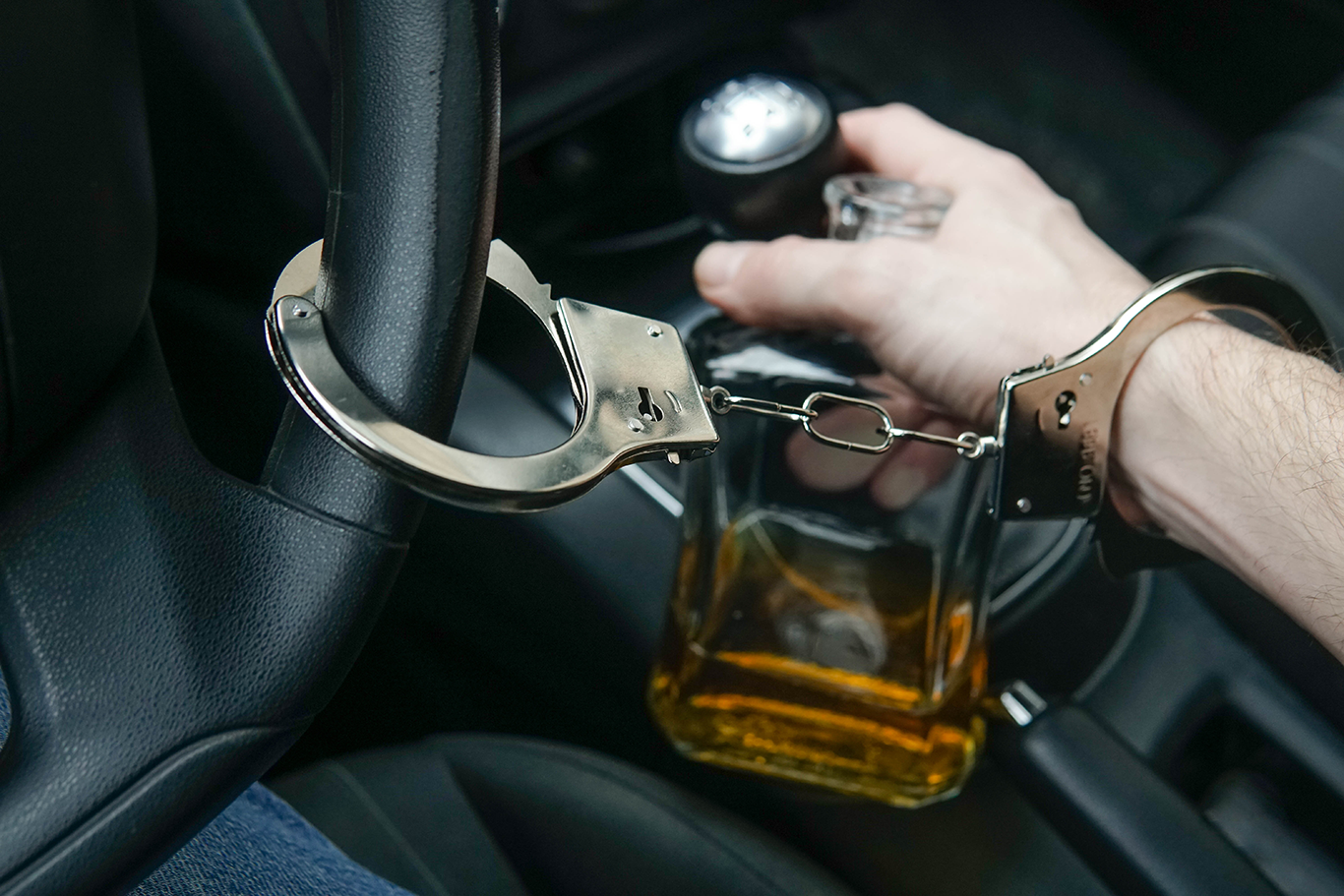How to Get Car Insurance in Florida With a Suspended License
16 April 2025
See How We're Different
or call us: (727) 620-0620

Obtaining car insurance in Florida can be a complicated process, especially if you have a suspended license. While having a suspended license often complicates matters, it does not completely eliminate your ability to secure insurance. Understanding the nuances of Florida's insurance laws and the specific steps to take can make a significant difference in your experience. This article aims to guide you through the process of getting car insurance in Florida with a suspended license.
Understanding License Suspension in Florida
Before diving into the insurance process, it's crucial to understand what a suspended license entails in Florida. A license suspension can occur for various reasons, including traffic violations, DUI offenses, or failure to pay fines. The duration of the suspension can vary based on the offense, and it can have serious implications for your ability to drive legally. Driving with a suspended license can lead to additional penalties, including fines and even jail time, making it essential to address the situation promptly.
In Florida, the Department of Highway Safety and Motor Vehicles (DHSMV) is responsible for managing license suspensions. If your license is suspended, you may be required to fulfill certain conditions before it can be reinstated. These conditions often include completing a driver improvement course, paying fines, or serving a probation period. It's important to stay informed about your specific case, as the requirements can differ significantly based on the nature of the suspension and your driving history.
Types of License Suspensions
There are several types of license suspensions in Florida, each with its own set of rules and requirements. Understanding these types can help you navigate the reinstatement process more effectively. Each type of suspension can impact your driving record and insurance rates, making it vital to know what you're dealing with.
- Administrative Suspension: Often resulting from DUI arrests or refusal to take a breath test. This type of suspension is immediate and can be particularly challenging, as it may not involve a court hearing.
- Court-Ordered Suspension: Typically imposed after a conviction for serious traffic violations. This suspension is often accompanied by court-imposed penalties, which can include community service or mandatory attendance at traffic school.
- Voluntary Suspension: When a driver chooses to suspend their license for personal reasons. This option may be considered by individuals who are facing financial difficulties or health issues that prevent them from driving.
Additionally, it's worth noting that Florida has a point system that tracks driver behavior. Accumulating too many points can lead to a suspension, even for minor infractions. For instance, receiving 12 points within 12 months can result in a 30-day suspension, while 18 points within 18 months can lead to a 3-month suspension. This system underscores the importance of safe driving habits and being aware of how your actions on the road can impact your driving privileges.
The Importance of Car Insurance in Florida
Florida is a no-fault state, which means that drivers are required to carry Personal Injury Protection (PIP) insurance. This insurance covers medical expenses and lost wages for you and your passengers, regardless of who is at fault in an accident. Additionally, Florida law mandates that all drivers have a minimum of $10,000 in PIP coverage and $10,000 in Property Damage Liability (PDL) coverage. This requirement is designed to ensure that all parties involved in an accident have access to immediate medical care and financial support, reducing the burden on the state's healthcare system and promoting safer driving practices.
Even if your license is suspended, having insurance is crucial. Driving without insurance can lead to severe penalties, including further suspension of your license and hefty fines. Furthermore, if you are involved in an accident while uninsured, you may face significant financial liabilities. The costs associated with medical bills, vehicle repairs, and potential lawsuits can quickly escalate, leaving you in a precarious financial situation. It is essential to consider the long-term implications of being uninsured, as the repercussions can extend beyond immediate fines and penalties.
Consequences of Driving Without Insurance
Driving without insurance in Florida can lead to a range of consequences that can complicate your situation even further. These consequences include:
- Fines and Penalties: The state imposes fines for driving without insurance, which can add to your financial burden.
- Extended License Suspension: Your license may remain suspended for a longer period if you are caught driving without insurance.
- Legal Issues: You may face legal action from other parties if you are involved in an accident without coverage.
In addition to these immediate consequences, driving without insurance can also lead to increased insurance premiums in the future. Insurance companies often view uninsured drivers as high-risk, which can result in higher rates when you do seek coverage again. Furthermore, if you are involved in an accident while uninsured, you may find it challenging to secure a policy afterward, as many insurers may refuse to cover individuals with a history of driving without insurance. This cycle can create a daunting barrier to obtaining affordable and reliable car insurance, making it even more essential to maintain coverage at all times.
Moreover, the emotional toll of driving without insurance can be significant. The fear of being pulled over or getting into an accident can lead to anxiety and stress, impacting your overall well-being. The uncertainty of facing legal repercussions or financial ruin can weigh heavily on your mind, making it difficult to focus on daily activities. In a state like Florida, where the roads can be unpredictable and accidents are not uncommon, having the peace of mind that comes with proper insurance coverage is invaluable. It allows drivers to navigate the roads with confidence, knowing they are protected against unforeseen circumstances.
Steps to Get Car Insurance with a Suspended License
While obtaining car insurance with a suspended license may seem daunting, there are specific steps you can take to simplify the process. Each step is crucial in ensuring that you not only get the coverage you need but also comply with state laws.
1. Assess Your Insurance Needs
The first step in obtaining car insurance while your license is suspended is to assess your specific needs. Consider factors such as the type of vehicle you own, how often you plan to drive (if at all), and your budget for insurance premiums. Understanding these factors will help you find the right coverage that fits your situation. Additionally, think about whether you will need liability coverage, which is often required by law, or if you want to consider comprehensive and collision coverage, especially if your vehicle is valuable or if you plan to drive it occasionally.
2. Research Insurance Providers
Not all insurance companies are willing to provide coverage for individuals with suspended licenses. Therefore, it is essential to research providers that specialize in high-risk insurance. Look for companies that have a reputation for working with drivers who have a history of license suspensions or other driving issues. It can also be beneficial to reach out to local insurance agents who may have insights into which companies are more flexible in their underwriting policies.
Utilizing online comparison tools can help you identify potential insurers quickly. These tools allow you to compare quotes, coverage options, and customer reviews, making it easier to find the right provider for your needs. Additionally, consider checking forums or community groups where individuals share their experiences and recommendations regarding insurance companies that cater to high-risk drivers.
3. Gather Necessary Documentation
When applying for insurance, you will need to provide specific documentation. This may include:
- Your suspended license information
- Proof of residency in Florida
- Details about your vehicle, including make, model, and VIN
- Any relevant court documents related to your license suspension
Having these documents ready can streamline the application process and help you avoid delays. Furthermore, it may also be wise to prepare a brief explanation of the circumstances surrounding your license suspension, as some insurers may request additional context to better understand your situation. Being transparent about your history can sometimes lead to more favorable terms or lower premiums.
Additionally, consider the implications of your suspended license on your insurance premium. Typically, high-risk drivers may face higher rates, but some insurers offer discounts for completing defensive driving courses or maintaining a clean driving record after the suspension period. Researching these options can provide you with potential savings and help you regain your driving privileges sooner.
Finding the Right Insurance Policy
Once you have completed the initial steps, the next phase involves finding the right insurance policy. This process requires careful consideration of various factors to ensure you get adequate coverage without breaking the bank.
Understanding Coverage Options
When selecting an insurance policy, it is important to understand the different types of coverage available. In Florida, the minimum required coverage includes:
Personal Injury Protection (PIP): Covers medical expenses and lost wages for you and your passengers.
Property Damage Liability (PDL): Covers damages to another person's property in an accident.
In addition to these minimum requirements, you may want to consider additional coverage options, such as:
- Collision Coverage: Covers damages to your vehicle in the event of an accident.
- Comprehensive Coverage: Covers damages to your vehicle from non-collision incidents, such as theft or natural disasters.
- Uninsured/Underinsured Motorist Coverage: Protects you in case you are involved in an accident with a driver who lacks sufficient insurance.
Understanding these options is crucial, as each type of coverage serves a specific purpose and can significantly affect your financial security in the event of an accident. For example, comprehensive coverage can be particularly beneficial in Florida, where severe weather events like hurricanes can cause extensive damage to vehicles. Additionally, uninsured motorist coverage is vital in a state where a significant percentage of drivers may not carry adequate insurance, providing peace of mind that you are protected even in unfortunate circumstances.
Evaluating Premium Costs
Insurance premiums can vary significantly based on several factors, including your driving history, the type of coverage you choose, and the insurance provider. It is essential to evaluate the cost of premiums in relation to the coverage offered.
When comparing quotes, consider not only the price but also the level of customer service and claims handling provided by each insurer. A slightly higher premium may be worth it for a company known for excellent customer support and efficient claims processing. Additionally, many insurers offer discounts for safe driving records, bundling policies, or even for completing defensive driving courses. Taking advantage of these discounts can lead to substantial savings over time, making it easier to afford the coverage you need while still keeping your budget in check.
Furthermore, it’s advisable to periodically review your insurance policy, especially after significant life changes such as moving, purchasing a new vehicle, or changes in your driving habits. These factors can influence your premium and the type of coverage that is most appropriate for your current situation. Staying proactive about your insurance needs not only helps you maintain the right level of coverage but can also uncover opportunities for savings that may not have been available when you first purchased your policy.
Working with an Insurance Agent
Engaging with an insurance agent can be beneficial when navigating the complexities of obtaining insurance with a suspended license. An experienced agent can provide valuable insights and help you find the best policy tailored to your unique situation.
Benefits of Using an Insurance Agent
Working with an insurance agent offers several advantages:
- Expertise: Agents are knowledgeable about the insurance market and can guide you through the options available.
- Personalized Service: An agent can tailor recommendations based on your specific needs and circumstances.
- Assistance with Paperwork: Agents can help you complete necessary documents and ensure that everything is in order.
Finding the Right Agent
When searching for an insurance agent, consider looking for someone who specializes in high-risk insurance. You can ask for referrals from friends or family or search online for agents with positive reviews. It’s important to meet with potential agents to discuss your situation and evaluate their approach to your needs.
Reinstating Your License
While obtaining car insurance is essential, it is equally important to focus on reinstating your suspended license. The process for reinstatement can vary based on the reason for the suspension, but there are general steps that apply in most cases.
Understanding Reinstatement Requirements
To reinstate your suspended license in Florida, you will typically need to fulfill specific requirements, which may include:
- Paying any outstanding fines or fees associated with your suspension.
- Completing a driver improvement course, if mandated.
- Providing proof of insurance coverage.
It is essential to check with the Florida DHSMV for the exact requirements applicable to your situation. Failing to meet these requirements can lead to further delays in reinstating your driving privileges.
Steps to Reinstatement
The process for reinstating your license generally involves the following steps:
- Gather all necessary documentation, including proof of insurance and any completion certificates for required courses.
- Visit the local DHSMV office or use their online portal to submit your reinstatement application.
- Pay any required fees associated with the reinstatement process.
- Receive confirmation of your reinstatement and ensure that your insurance provider is updated with your new license status.
Staying Insured During License Suspension
Maintaining insurance coverage during a license suspension is crucial for several reasons. Not only is it a legal requirement, but it also protects you financially in case of an accident.
Options for Maintaining Coverage
If your license is suspended, you may have several options to maintain your insurance coverage:
- Non-Owner Car Insurance: If you do not own a vehicle but still need insurance, non-owner car insurance can provide liability coverage when you drive someone else's car.
- Reduced Coverage: Some insurance providers may allow you to lower your coverage levels during the suspension period, which can help reduce premiums.
- Payment Plans: If premium costs are a concern, consider discussing payment plans with your insurance provider to make coverage more manageable.
Communicating with Your Insurance Provider
Open communication with your insurance provider is essential during a license suspension. Inform them of your situation and any changes in your driving status. This transparency can help you avoid potential issues with your policy and ensure that you remain compliant with state laws.
Conclusion
Obtaining car insurance in Florida with a suspended license is undoubtedly challenging, but it is not impossible. By understanding the implications of a suspended license, researching insurance options, and following the necessary steps for reinstatement, individuals can navigate this complex process more effectively.
Staying informed about your rights and responsibilities as a driver in Florida is crucial. Whether you are looking to reinstate your license or maintain insurance coverage during a suspension, taking proactive steps can lead to a smoother experience. Ultimately, the goal is to ensure compliance with state laws while protecting yourself and others on the road.




